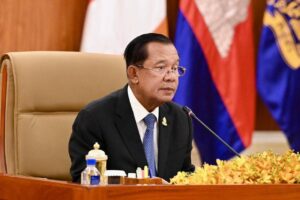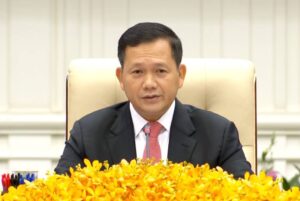English Proficiency Index Shows Cambodia’s Language Skills Progress
Cambodians are increasingly learning English as their second language and the country has been ranked 84th out of 100 countries in the world in English proficiency according to the recent EF English Proficiency Index (EF EPI) 2020.
The country landed 94th in last year’s survey, moving up ten places this year. However, it has remained under the “very low” proficiency designation since its inclusion in 2014.
Among 24 countries in Asia, Cambodia ranks 18th. Singapore, with very high proficiency English skills, settled at the tenth spot among 100 countries globally, but first in Asia.
The Philippines is second in Asia followed by Malaysia, South Korea, Macau, China and India.
Thailand is 89th among the global rankings while 20th in Asia.
Vietnam got the 65th spot and 13th in Asia.
Tajikistan, a country in central Asia was ranked lowest both globally and in Asia.
Several factors have affected the Kingdom’s English proficiency skills. One is poverty, that has been a problem in the country for a long time. Some children are forced to stop going to school at a very young age in order to help their parents to earn money.
Another factor is that lower income families send their children to public schools where the standard of English taught is lower that in private schools.
Veary Ath, a mother of three from Boeng Tumpun commune in Meanchey district in Phnom Penh, enrolled her twins in a private school at a very young age. They both started when they were three. At the age of five, her twins already speak English remarkably while her two-year old youngest son is also starting to learn English.
“Nowadays, it’s most common for a majority of parents in Phnom Penh to enroll their kids in private schools early. We see English as an important international language that kids will need for their life and career in the future,” she said.
Fluent English speakers in Cambodia are mostly found in the major cities – Phnom Penh and Siem Reap.
The EF EPI, an international education company, sponsored the study released last week by ranking the countries and regions through a standardised test. The index is an online survey which was first published in 2011, based on test data from 1.7 million examinees.
The tests were conducted online. Surveys that could not be completed online were automatically excluded, raising issues of internet penetration – the relationship between the number of internet users in each country and its demographic area.
In countries or regions where internet usage is low, the impact of exclusion is expected to be strongest, according to the index.
Cambodia’s internet penetration was at 40 percent, Thailand’s at 56 percent and Vietnam at 70 percent which explains why Vietnam is ranked much higher.
The Netherlands topped the global rankings with 94 percent internet penetration, consistently with very high proficiency since 2011, and never went lower than the third spot. It is followed by Denmark, Finland, Sweden and Norway.
Ismail Abdul Samat, Singapore Cambodia International Academy’s pre-school and primary school principal, shared that most private or international schools in Cambodia adopt curricula that are benchmarked against international standards, such as Cambridge, International Baccalaureate (IB) and the Singapore iPSLE. Moreover, the teachers from most international schools hail from more diverse backgrounds and nationalities, who will provide an environment for students to use and practise the English language regularly.
“Other than preparing students for written examinations, our teachers use the systematic approach of covering key language skills in a structured way – reading, speaking, listening, and writing. To enhance language learning, teachers infuse creative and critical thinking skills in their lessons. They also inspire a love for the language through activities such as story-telling, choral speaking, performances, and debates,” he added.






